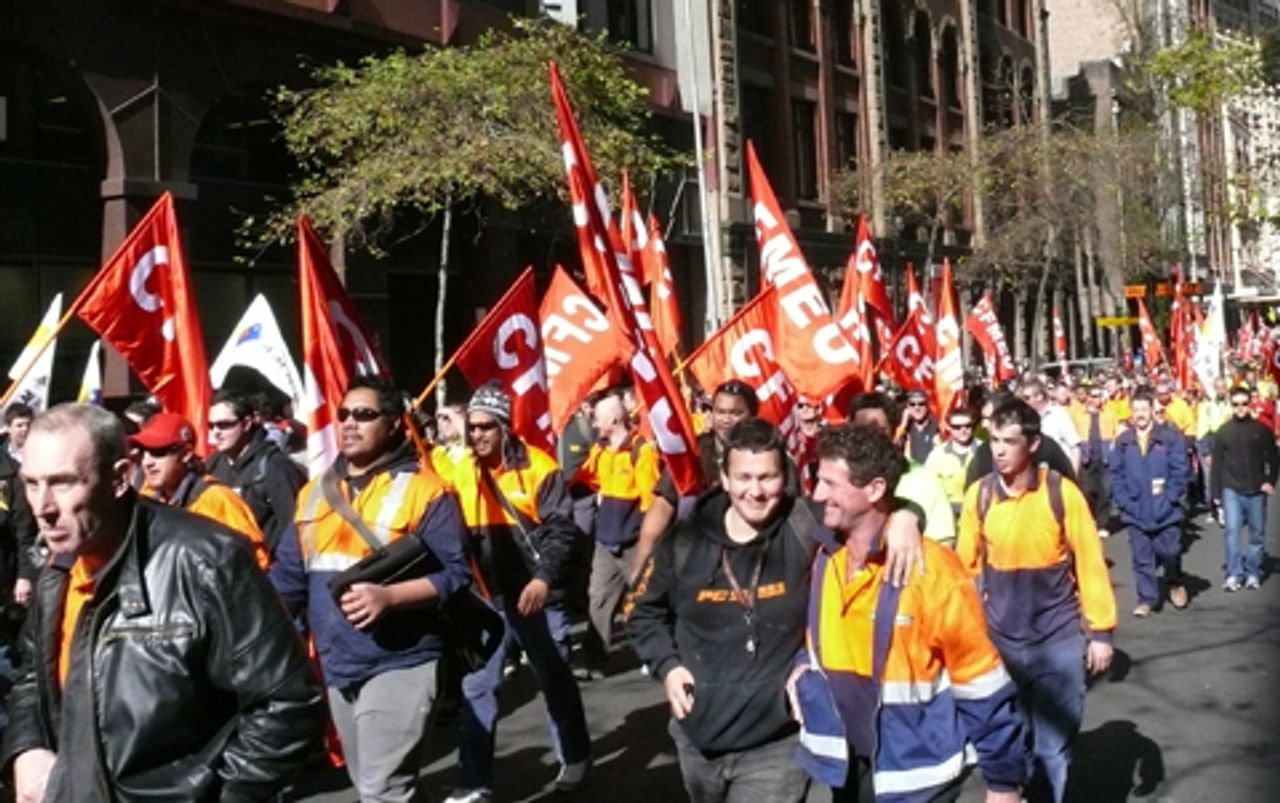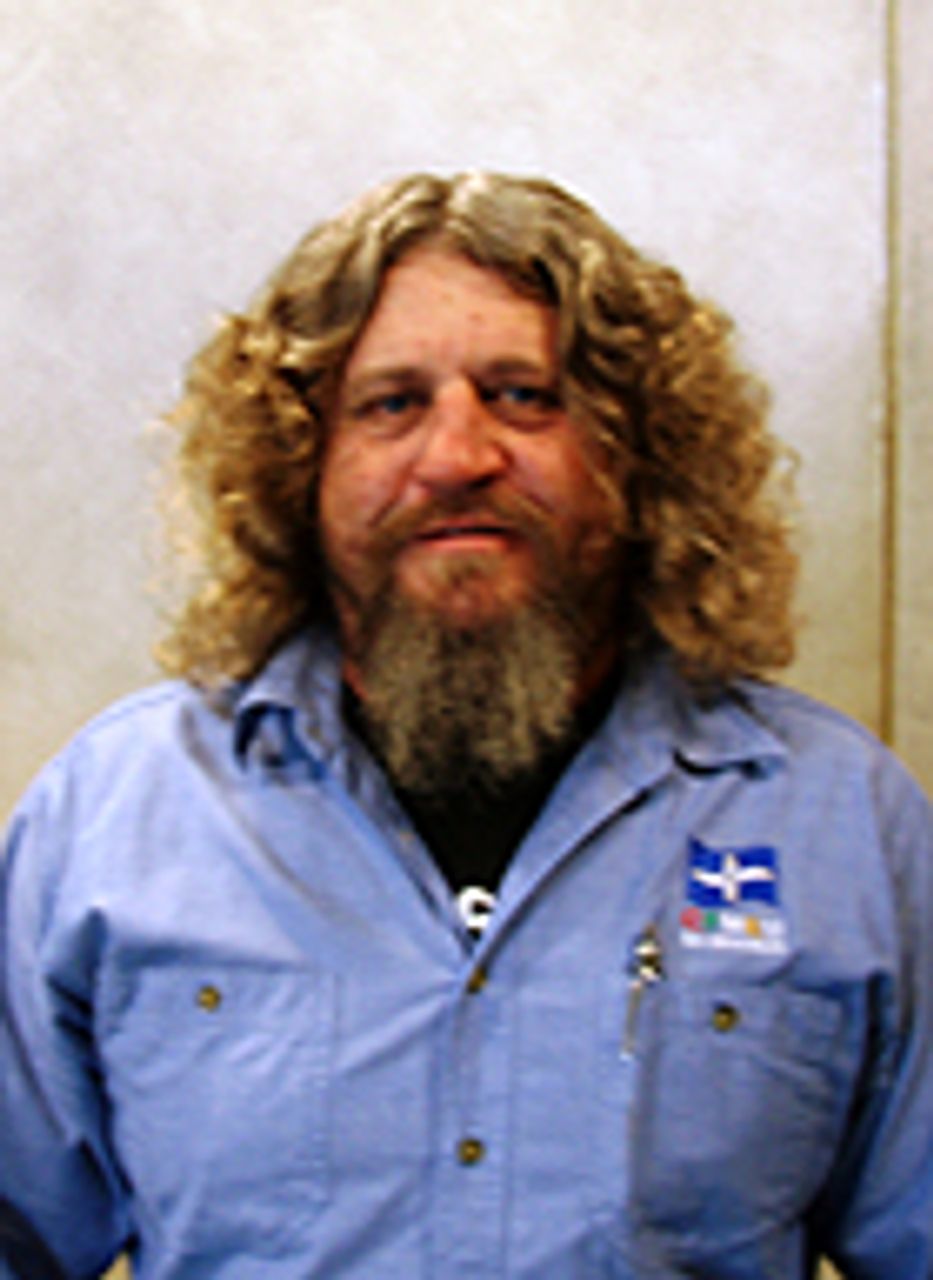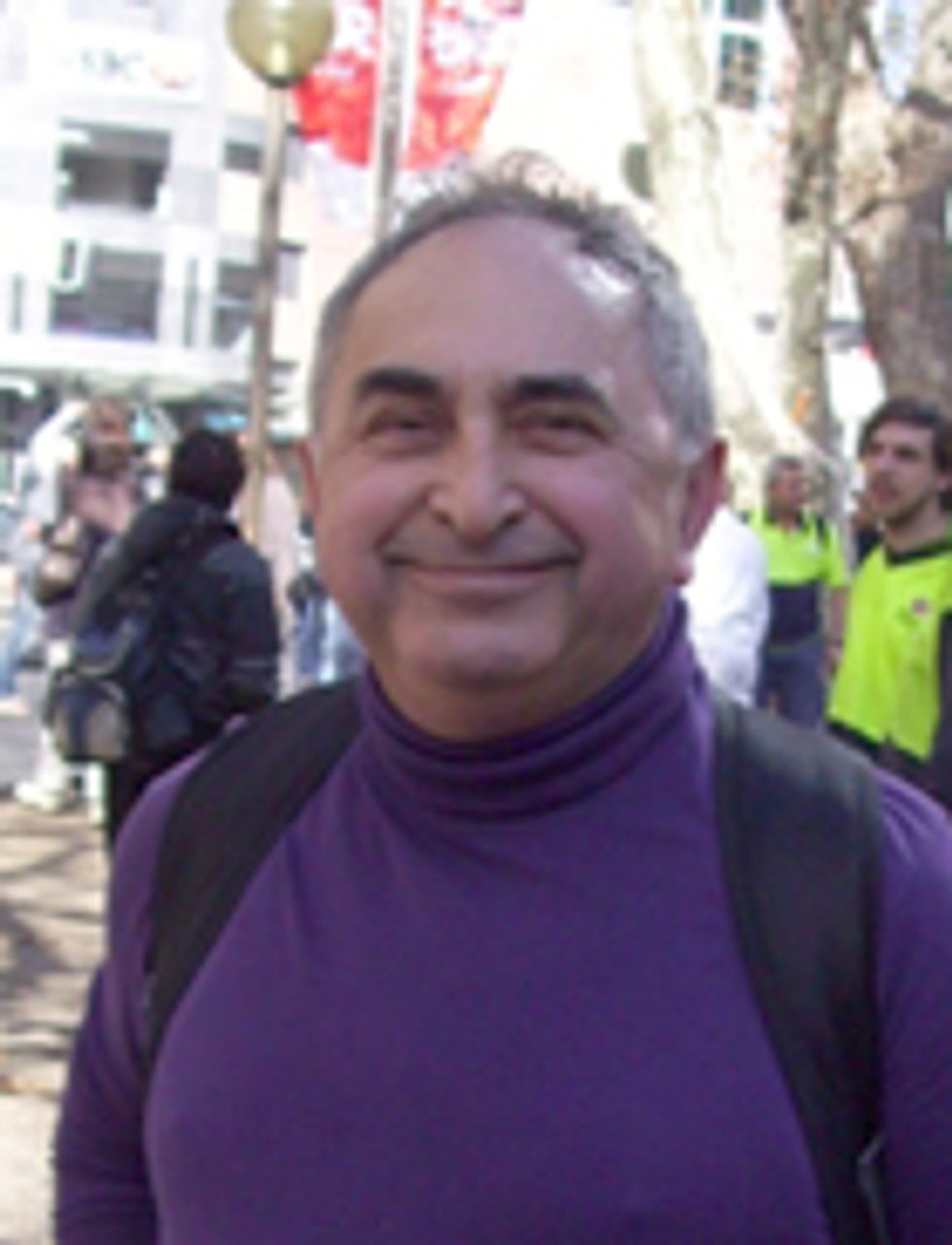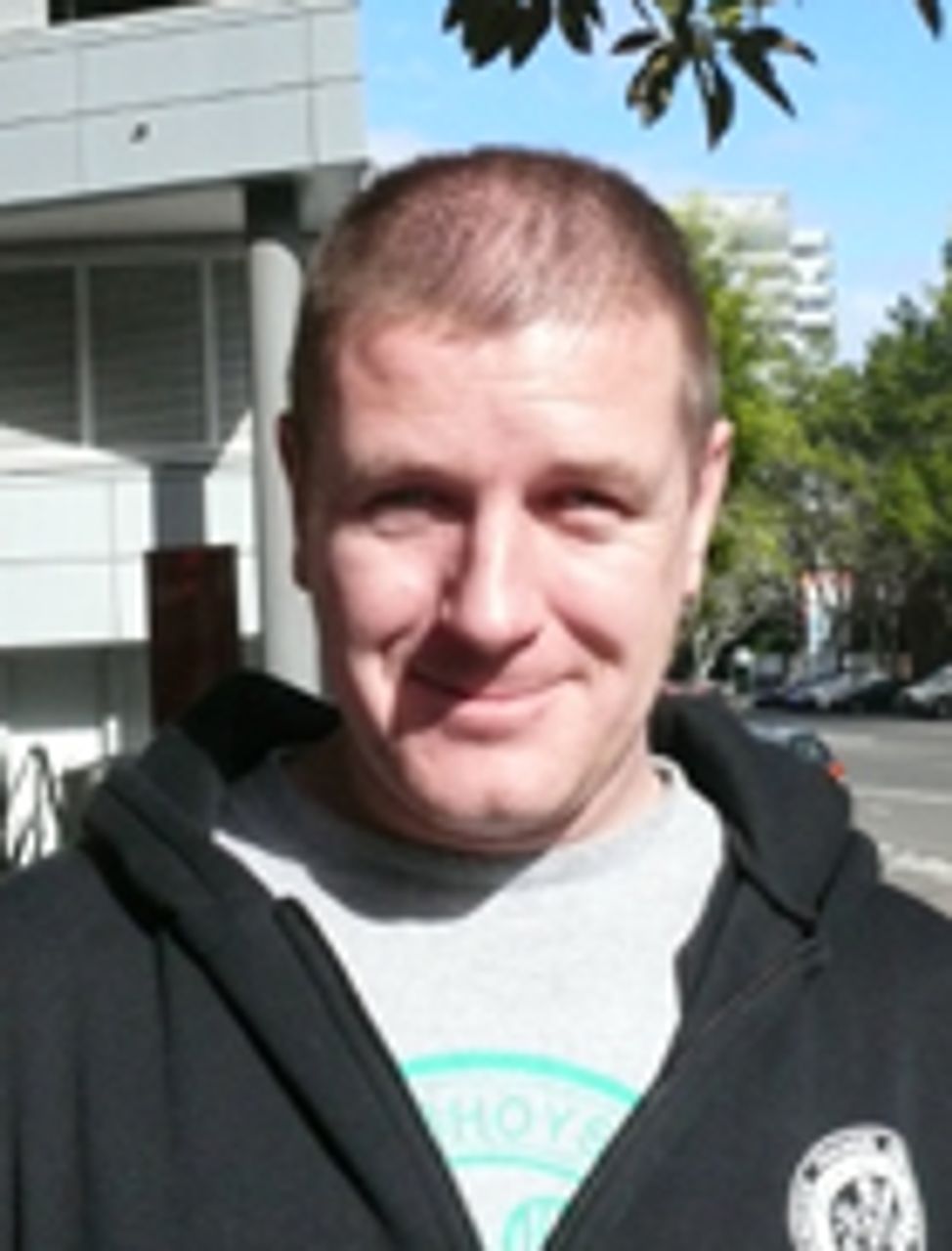The trial of South Australian construction worker, Ark Tribe, on charges of refusing to answer questions from the federal Labor government’s building industry watchdog, resumed yesterday in the Adelaide Magistrates Court. Hundreds of workers in Adelaide, about 2,000 in Sydney and a similar number in Melbourne rallied in support of Tribe, who faces up to six months in jail.
In Sydney, workers also demanded that employers pay site allowances on the large Barangaroo building site on Sydney Harbour. They marched through the city, from the Sydney Town Hall, to the offices of the Barangaroo project’s head contractor, Bovis Lend Lease.
However, the unions prevented any discussion of Prime Minister Julia Gillard’s pledge, as the Rudd government’s workplace minister, to retain the coercive powers being used against Tribe. The government plans to hand the powers of the Australian Building and Construction Commission (ABCC) to a specialist division of Labor’s Fair Work Australia industrial tribunal. Gillard has described the planned agency as a new “cop on the beat” in the construction industry.
 A section of the Sydney protest
A section of the Sydney protestNone of the speakers even mentioned Gillard, or the business-backed coup that last month suddenly removed her predecessor Kevin Rudd, demonstrating the nervousness among union officials about opening up any discussion on the role of the mining companies and big business in Rudd’s removal, and about building workers’ response to Gillard, who is notorious for blackguarding striking Melbourne Westgate Bridge construction workers as thugs in 2008.
The intention behind the rallies was plain: divert workers’ anger away from Gillard and channel workers back into supporting Labor at the August 21 federal election. Union speakers resorted to denunciations of Liberal opposition leader Tony Abbott, claiming that he would re-introduce the previous Howard government’s “Work Choices” industrial relations measures. In reality, Gillard’s “Fair Work” laws retain all the anti-strike provisions of “Work Choices”.
Tribe is being prosecuted under industrial laws originally introduced in 2005 by the Howard Liberal government but which Labor, at Gillard’s direction, has used without hesitation against workers since 2007. Tribe is charged with failing to answer questions about a stop-work meeting in 2008 at a site at Adelaide’s Flinders University. The workers called the meeting to discuss persistent safety problems on the site.
 Ark Tribe
Ark TribeThe building site operator, Hindmarsh Constructions, called in the police and locked workers out the next day. The ABCC, which can issue fines for “unlawful” industrial action, stepped in on Hindmarsh’s behalf, demanding that Tribe and other workers divulge information about their co-workers. Workers brought before the ABCC have no right to remain silent, a democratic right protected in even the most serious criminal investigations.
Lawyers for Tribe yesterday questioned whether the ABCC had power to call Tribe in for questioning. Seamus Flynn, an ABCC investigator, admitted in cross-examination that he had “no evidence” that Tribe had taken part in industrial action. Tribe’s lawyers also argued that Flynn’s investigation into the Flinders University stop-work meeting was inconsistent with his other ABCC role as a safety inspector. The lawyers argue that Flynn could not legally do both jobs at once.
Over the past two years, the Construction Forestry Mining and Energy Union (CFMEU), the nation’s main construction union, has organised protest rallies over Tribe’s prosecution and the punitive powers of the ABCC. But the CFMEU is also very conscious of the need to prevent rank-and-file workers’ opposition from getting out of hand. One reason for this is that the CFMEU, for all its bluster about workers’ rights, has co-operated fully with the ABCC, attending ABCC interviews and paying millions in fines without a squeak, including $20,000 in the case of the Flinders University stop-work investigation itself. The union has made only vague promises to call mass industrial action, and then only if Tribe is actually jailed.
In fact, the likelihood of the construction unions calling a mass strike in the event that Tribe is jailed at the end of this week’s case is zero. With many workers furious at Gillard’s toppling of Rudd at the behest of the mining industry, and with Labor facing a backlash at next month’s election, the unions’ sole focus is to keep a tight lid on anti-Labor sentiment and deflect criticism of Labor’s own industrial relations regime.
At the Sydney rally, CFMEU state secretary Andrew Ferguson refused to allow the Socialist Equality Party (SEP) candidate for Newcastle, Noel Holt, to speak. Yet Ferguson welcomed a representative of the Gillard government—Labor Senator Doug Cameron—onto the platform. Unions NSW officials also flatly rejected a request from the SEP for an “open mike” session so that Holt and rank and file workers could speak on the role of the Gillard government. Holt later released a copy of the remarks he planned to make to the rally, making public the comments that the union leaders sought to silence. (See: “SEP candidate calls for political struggle against Labor’s anti-strike laws”).
Ferguson reinforced the unions’ support for Labor’s “Fair Work” laws by leading chants of “one law for all”. This slogan calls for building workers to be subjected to the legislation, which prohibits industrial action except for specified enterprise bargaining periods. Ferguson urged workers to make the August 21 federal election a “line in the sand” against Abbott and the Liberals. He declared that workers would lose basic conditions if Abbott took office, but said nothing about Gillard’s record over the past three years of repeatedly threatening to use the “full force of the law” against striking workers.
Cameron, a former union leader, described the ABCC as an “affront” that “we should remove as quickly possible after the election.” This claim means nothing more than fulfilling Labor’s long-standing promise that at the end of 2010 it will disband the ABCC and transfer its powers to a rebadged unit inside Fair Work Australia.
In fact, the current Workplace Relations Minister Simon Crean told the Australian Council of Trade Unions (ACTU) executive last night that the government had no intention of deviating from its plan to hand the ABCC’s “coercive” powers to the Fair Work tribunal.
 Peter Dedic
Peter DedicIn interviews with WSWS correspondents at the Sydney rally, workers expressed anger at the unions and Labor, and at the way the rally had been conducted. Peter Dedic, a form worker, said he had voted for Labor for 40 years but would now “never vote Labor again. Gillard stabbed Rudd in the back. She did nothing to abolish the ABCC.” Dedic, originally from the former Yugoslavia, said: “We have to march until the laws are changed. Labor and the Liberals won’t change them.” Asked why he thought the speakers had said nothing about the Labor government’s record, Dedic said he thought the officials had been instructed not to speak about Labor because of the feeling among workers.
 Adrian Harrigan
Adrian HarriganAdrian Harrigan, a mechanical plumber, said the rally had left many questions unanswered. “Why is the ABCC still there? In 2007, Labor said it would be the first thing they abolished. Their new body to replace the ABCC is just a different title.” Harrigan, who emigrated from Ireland three years ago, described Rudd’s removal as “pretty ruthless… he was made the scapegoat for the mining tax.” He said Rudd had “paid the price for not moving quicker to halt the stimulus packages”.
The plumber said Labor and Liberal “are as bad as each other,” adding, “Labor is doing the dirty work for the Liberals.” He commented: “No questions were asked of Doug Cameron. He said he was the voice of the unions in parliament. No one mentioned Gillard’s laws to replace the ABCC.” Harrigan was incensed that the union officials had refused to allow Noel Holt to raise these questions. “They spoke about the unions being for democracy today, but they are still a load of bureaucrats.”
In Melbourne, Paul Thompson, a building worker at Crown Casino, told the WSWS: “Julia Gillard doesn’t look good. Labor was supposed to get rid of all this sort of stuff [the ABCC]. I’m a bit disillusioned, now I’ve heard the facts about what she has done.
“I’m in the Electrical Trades Union. We’ve just had a vote to sever all ties with the Labor Party. I thought we had to work at the grass roots, and attend all the rallies. But we only heard about this rally this morning—and we didn’t really even know where it was. We decided to come and look along St Kilda Rd until we found where it was. There are a lot of young apprentices at our workplace. They’ve never seen industrial action. They were a bit nervous about coming until we made the decision to do it.”
The trial of Ark Tribe continues today.
